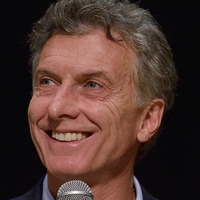Foreign-currency bonds offer Argentina needed resources but come with heavy risks.
The country that defaulted on $132 billion in external debt in December 2001—days after it had gone through five presidents in two weeks—now has an enviable public debt of 20% of GDP. If we were not talking about Argentina, such a country would be a paradise for investors, especially at this current period of low returns on investments in advanced economies.
Argentina should finish 2016 in recession, says the IMF, with its GDP shrinking 1.5% after three years of low economic growth and a multitude of negative statistics. Unemployment is expected to surpass 10%, annual inflation should reach 40%, and the primary public deficit will certainly be higher than the official target of 4.8% of GDP. Poverty has already taken over 35% of Argentines, according to a study from Catholic University of Buenos Aires.
During 10 months under the command of Mauricio Macri, a right-wing former mayor of Buenos Aires, Argentina has been struggling to reverse the popular economic measures implemented over 15 years under subsequent administrations of Nestor Kirchner and his widow, Cristina Kirchner.

The government hopes to improve economic activity with no public expenditures and to make the implementation of Macri’s agenda more palatable by attracting investors. But no tsunami of foreign direct investment has yet materialized. The government grandly announced $33 billion of FDI this year, reportedly targeted to the infrastructure and oil sectors. But only $1.3 billion has actually arrived in the country, according to business consulting firm Ecolatina. Investors have been waiting to see if Macri can keep his promise to reduce the public deficit.
“Macri still has high legitimacy and political capital to make the reforms that Argentina needs,” says Mauro Leos, vice president of Moody’s Investors Service. “The government’s task will not be easy, but there is a clear sense of change and optimism about how you see the country’s future and how you saw its recent past.”
Macri’s economic team announced a new inflation goal—5% per year by December 2019—and a plan to achieve a primary public deficit of 4% of the GDP in 2017. The perspective for 2017, if most of Macri’s work is done, is bright: an output growth of 2.8%, the IMF estimates.
However, Macri is not a dictator. A substantial part of his fiscal agenda, which clashes with social demands, had to be submitted to Argentina’s congress and/or supreme court. Rooted in Argentine society, populist Peronism holds a majority in congress. The opposition also holds most of the Supreme Court of Justice, whose members restored gas subsidies that had been cut.
Macri reacted by restraining the pace of the fiscal adjustment and is searching for some budget space to adopt short-term economic stimuli. In the midst of this task, his team is not seen as in sync with the national mood and has not shown willingness to negotiate with the noisy opposition. For the economist Pablo Gerchunoff, Macri has no choice but to adopt a “certain degree of populism.”



